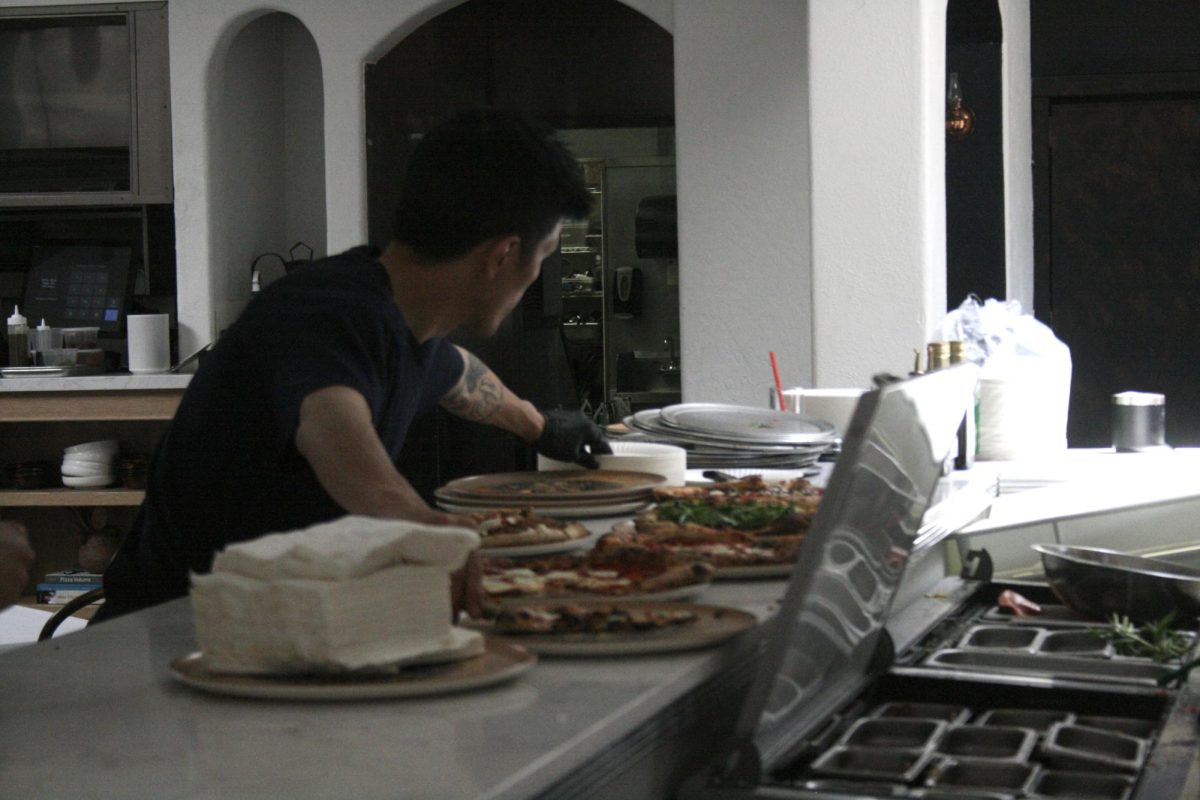The world’s oceans, including the nearby Pacific, have been dubbed our “greatest ally to climate change” by the United Nations. Oceans absorb 90% of global excess heat emissions and 25% of carbon dioxide emissions, according to the article.
Any San Diego State University student can join in ocean conservation and sustainability efforts, regardless of their major. The Surfrider club is one of them.
As the club enters its third year, President Sofia Van Looy reflects on Surfrider’s growth in membership and passion. Meeting attendance has gone from an average of five people to an average of 20.
“We try to bring in not just talking at people, but bringing in a community and hopefully building our club,” Van Looy said.
She describes the club as a place to spread awareness and knowledge on ocean conservation and protection through annual events and sustainability discussions.
“It was nice to have a community to be a part of that shared similar interests for protecting our coastal areas,” said Internal Relations Manager Olivia Boitano.
While Surfrider helps create a conservationist community on campus, SDSU’s Coastal and Marine Institute Laboratory researches pressing marine ecology concerns.
The Coastal and Marine Institute consists of the laboratory, the diving program and boating facilities.
Brian Hentschel, Ph.D., is an associate professor of biology at SDSU and a researcher at CMIL. He helped design SDSU’s portion of the facility during its construction in 2006. SDSU occupies 25% of the lab space, with 75% allocated to the U.S. Geological Survey.
“I saw it go from blueprints to an empty building that we thought, wow, this is a lot of space for us,” Hentschel said. “In the last eight to 10 years, we’ve actually almost outgrown the space.”
One of his main projects focuses on the best ways to address the overpopulation of sea urchins along the California coast, and how the urchins can be harnessed to address climate change.
Hentschel explained that sea urchins rely on kelp as one of their main food sources. He also remarked that their population can experience rapid growth, enabling the destruction of kelp forests.
Kelp is a vital resource, especially for combating climate change, according to the World Wildlife Fund. Kelp captures and stores oceanic carbon, but can also serve as a food source and as an alternative to plastic. Kelp harvesting can help support fishers, whose industry has been hit hard by global warming, according to the World Wildlife Fund.
A company called Urchinomics proposed a mutually beneficial solution for kelp, sea urchins and humans alike. The goal is to harvest sea urchins from their kelp-barren habitats, bring them to aquaculture laboratories, and feed them to encourage reproduction. From this reproduction comes urchin eggs, a valuable commodity for sushi.
Though Hentschel is optimistic about the project and the facilities at CMIL, he believes it is several years away from commercialization.
While Hentschel and the laboratory are hopeful for the future, other research projects in San Diego, however, have struggled to advance.
In early September, The Scripps Institution of Oceanography had to halt its research on air quality in Imperial Beach due to safety concerns, according to NBC 7.
Beaches in the area were closed for over 1,000 days due to toxic amounts of hydrogen sulfide in the air. The pollution results from sewage from the Tijuana Riverbed, with recent heat levels intensifying the danger.
Sections of Imperial Beach reopened on Sept. 23 following fixed architecture and changes in ocean direction, according to Fox 5 KUSI News.
However, the mayor of Imperial Beach, Paloma Aguirre, remarked that celebrations may be temporary, as conditions continue to be monitored and could change at any minute, according to the article.
In light of these recent climate events, ocean conservation is more of a necessity than ever. SDSU has multiple ways students can be engaged in environmental issues that support the coasts, both inside and outside of science research.
This year, Surfrider hopes to explore new ventures in addition to its beach clean-ups and sustainability discussions.
Throughout November, the club will collaborate with Betty Boarders to hold a surf swap shop and with Save Soil to hold a tabling event. Van Looy also hopes to collaborate with Green Love to hold a screening of a pollution documentary.
Surfrider and other similar student organizations make marine conservation an accessible and exciting conversation for all students.
“It’s a place where we spread education on ocean conservation and bring that to the community of SDSU,” Van Looy said. “[We] try to help instill more sustainable habits into people and spread awareness about that.”






